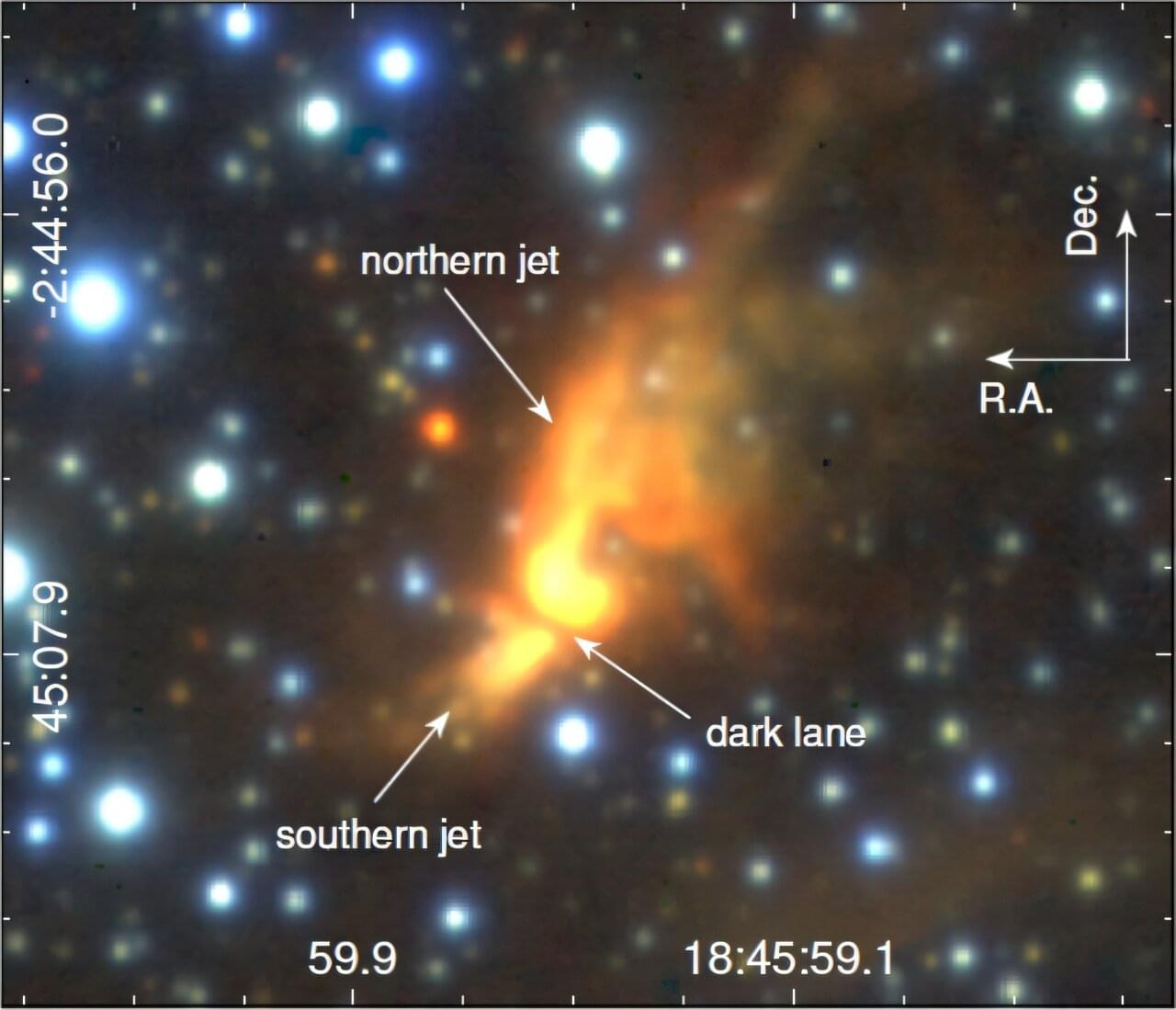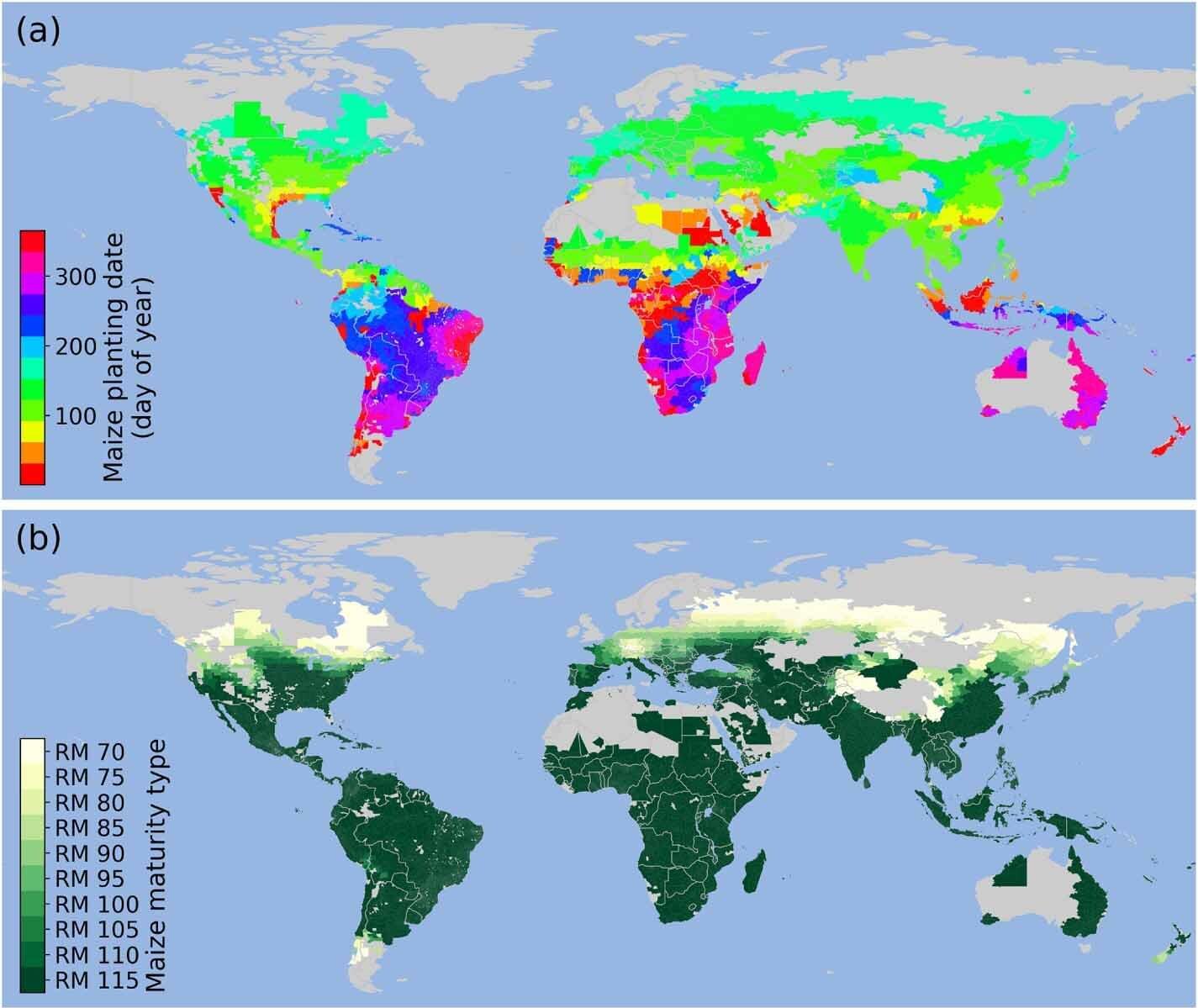Astronomers from Argentina and Spain have performed near-infrared observations of a massive young stellar object known as MYSO G29.862−0.0044. The observational campaign sheds more light on the nature of this object and its unique morphology. The new findings are presented in a paper published August 13 on the arXiv preprint server.
Massive young stellar objects (MYSOs) are stars in the very early stage of formation and the progenitors of massive main-sequence stars. However, due to their short formation timescale (about 10,000–100,000 years) and the severe extinction by the surrounding gas and dust, observations of MYSOs remain challenging.
Located some 20,200 light years away, MYSO G29.862−0.0044 (YSO-G29 for short), is a massive young stellar object associated with the star-forming region G29.96–0.02. The object is likely embedded within a dense molecular core.





